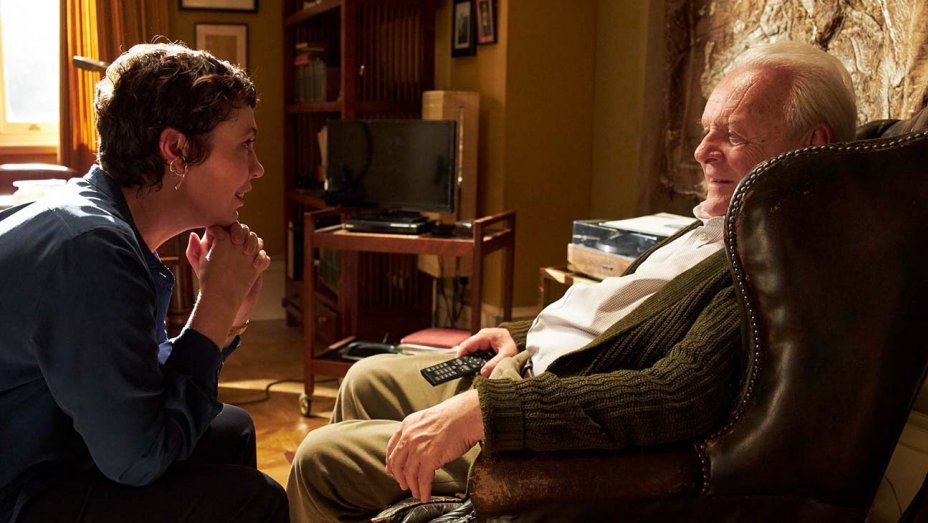Film in the time of corona
2020: Cinema soldiers on during pandemic
From The Orlando Weekly, December 30, 2020
According to Benjamin Button, “Our lives are defined by opportunities, even the ones we miss.”
And so went 2020, a year of lost opportunities. But if there is a cinematic silver lining to this annus horribilis, it’s that small flicks and new filmmakers gained opportunities passed up by big studios and established moviemakers, many of whom delayed their releases.
Documentaries benefitted the most. After all, docs are rarely blockbusters even in good times, so they had little to lose from limited releases and virtual festivals. And at the top of the list is Boys State, which captures – through fly-on-the-wall moments and intimate interviews at a summer camp for future politicians – the best and worst instincts of tomorrow’s leaders. Mr. Smith Goes to Washington meets Lord of the Flies.
On the other end of the stylistic spectrum is Gunda, a serene yet agonizing look at animals in captivity. Using beautiful black-and-white cinematography, director Viktor Kosakovskiy profiles the lives of pigs, cows and chickens. It’s a plea to humanity to slow down, care for our fellow creatures and put aside our ADD, consumer-driven lifestyle. That’s a lesson taught, in a different way, by another doc that garnered more attention: The Social Dilemma.
For a masterclasses in doc editing, consider Some Kind of Heaven, which, appropriately, played the Florida Film Festival. An oddly stylistic glimpse into life in the retirement community of The Villages, Florida, this debut film from Lance Oppenheim is one of the most unsettling yet strangely enjoyable films of 2020. But if you’re looking for something conventional, you can’t go wrong with master documentarian Barbara Kopple’s Desert One, a journalistically solid discussion about the failed 1980 mission to rescue American hostages from Iran.
In a year filled with discussions of race, Soul and Ma Rainey’s Black Bottom could be the best films focused on the Black American experience. The former, a Pixar fantasy directed by Pete Docter, might seem like a mix of Up and Inside Out, but its heart is all its own. Meanwhile, Ma Rainey, starring the incomparable Viola Davis, is a deceptively simple story told almost in real time. This adaptation of the August Wilson play, like his Fences, is intimate and heartbreaking, even more so because it showcases the final performance of Chadwick Boseman, whose unexpected death four months ago left a scar on the acting community.
When Oscar nominations are announced on March 15 – more than a month later than normal – Davis and Boseman will likely be joined by Ben Affleck, who gives a career performance in The Way Back as an alcoholic basketball coach. It feels real because, in large measure, Affleck lived the part. Equaling deserving is the greatest stage-and-screen actor of his generation, Mark Rylance, in the year’s most underrated film, Waiting for the Barbarians, director Ciro Guerra’s English-language debut.
Rylance, regrettably, is unlikely to get a nod because of the film’s low profile. The same goes for other outstanding performers such as Amy Adams in Ron Howard’s otherwise-average Hillbilly Elegy; Elisabeth Moss in the year’s best thriller-horror, The Invisible Man (though Moss is also getting raves for Shirley); newcomer Abigél Szõke in the Hungarian drama Those Who Remained; and Michael Shannon for his offbeat supporting role in Quarry.
One who is practically guaranteed a nomination, however, is Frances McDormand in Nomadland, a haunting, hyper-realistic tale of modern American gypsies. And then there’s reliable Tom Hanks, as father-figure comfort food, in the revisionist western News of the World.
The year’s best ensembles might be found in Lee Isaac Chung’s Minari (a superbly crafted and unique glimpse into the lives of Korean immigrants struggling to raise a family in 1980s Arkansas) and The Trial of the Chicago 7, from writer-director Aaron Sorkin. Yuh-jung Youn, from the former film, and Eddie Redmayne, Rylance (again) and Sacha Baron Cohen (who also deserves praise for the year’s funniest film, Borat Subsequent Moviefilm) are impossible to forget in Trial.
The year’s greatest movie (with the best performance) is possibly The Father, starring Anthony Hopkins, though, like Minari and Nomadland, most audiences won’t see it until 2021. A heart-crushing, deconstructionist, even experimental dissection of dementia, writer-director Florian Zeller’s drama – adapted from his Tony-winning play – is proof that, even in the film industry’s most destructive year since 1918, cinema still found a way to illuminate the human condition. It’s also a reminder that, unlike the aforementioned Mr. Button, we are all doomed to age. So as 2020 comes to a close, we find ourselves older but exponentially wiser than we had anticipated.
© 2020 Orlando Weekly / MeierMovies, LLC
And for my complete ranking of 2020 films, from best to worst, see my yearly list.
